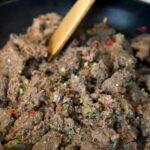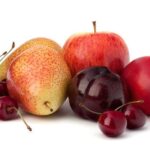Bringing food on a plane can make your journey more comfortable and enjoyable. However, navigating the rules and regulations surrounding food items can be confusing. This guide provides a detailed overview of what you can and cannot bring, focusing on the common query: “Can You Bring Food On Airplane?”
General Rules for Bringing Food on Airplanes
The Transportation Security Administration (TSA) has specific guidelines regarding food items in both carry-on and checked baggage. Generally, solid food items are allowed in both, while liquids are subject to the 3-1-1 rule for carry-ons.
Solid Foods
Solid foods like sandwiches, snacks, fruits, and vegetables are typically allowed in both carry-on and checked bags. However, it’s always a good idea to check the specific regulations of your destination country, as some countries have restrictions on importing certain food items due to agricultural concerns.
Liquid Foods
Liquid foods, such as soups, sauces, and yogurts, are subject to the TSA’s 3-1-1 rule for carry-ons. This means each liquid item must be in a container that is 3.4 ounces (100 milliliters) or less, all containers must fit into a single quart-sized clear plastic bag, and each passenger is limited to one bag. Larger quantities of liquid foods can be packed in checked baggage.
Specific Food Items and Regulations
Certain food items have specific rules and considerations. Here are some examples:
- Baby Formula, Breast Milk, and Baby Food: These items are considered medically necessary liquids and are exempt from the 3-1-1 rule. You can bring them in quantities greater than 3.4 ounces in your carry-on baggage. It is important to inform the TSA officer at the beginning of the screening process. TSA officers may need to test the liquids for explosives or concealed prohibited items. It is recommended that formula and breast milk be transported in clear, translucent bottles and not plastic bags or pouches to expedite the screening process.
- Alcohol: You can bring alcohol in your checked baggage, but it must be in unopened bottles or flasks. The TSA limits the amount of alcohol you can bring based on its alcohol content. For carry-ons, you can only bring alcohol purchased after clearing security, such as from duty-free shops.
- Ice Packs and Cooling Accessories: Ice packs, freezer packs, frozen gel packs, and other accessories required to cool formula, breast milk, toddler drinks, and baby/toddler food are allowed in carry-ons. If these items are partially frozen or slushy, they are subject to the same screening as liquids.
Tips for Traveling with Food
To make your journey smoother, consider these tips:
- Pack Smart: Pack food items in clear, resealable bags or containers for easy inspection. This can help expedite the security screening process.
- Check Regulations: Always check the TSA’s website (https://www.tsa.gov/) for the most up-to-date regulations. Also, verify any restrictions imposed by your destination country.
- Inform TSA Officers: If you’re carrying liquids or gels that exceed the 3-1-1 limit due to medical necessity or other reasons, inform the TSA officer at the beginning of the screening process.
- Consider Purchasing After Security: If possible, consider purchasing food and beverages after you’ve cleared security to avoid any potential issues with regulations.
What Happens During Security Screening?
During security screening, TSA officers may need to inspect your food items. This could involve removing them from your bag for closer examination or testing liquids for explosives or concealed prohibited items. If you prefer that your formula, breast milk, toddler drinks, and baby/toddler food not be X-rayed or opened, inform the TSA officer. Additional steps will be taken to clear the liquid, and you or the traveling guardian will undergo additional screening procedures. TSA X-ray machines do not adversely affect food or medicines.
Traveling with Children
When traveling with children, the rules regarding food and liquids are more lenient. As mentioned earlier, baby formula, breast milk, and baby food are exempt from the 3-1-1 rule. You can also bring liquid-filled teethers and other accessories required to cool formula or breast milk.
Conclusion
So, can you bring food on airplane? The answer is generally yes, with some considerations for liquids and specific items. By understanding the TSA’s regulations and planning ahead, you can bring your favorite snacks and meals on your next flight. Always check the latest guidelines and be prepared to inform TSA officers about any special circumstances. Enjoy your trip!
Resources
- TSA Website: https://www.tsa.gov/
- TSA Cares: http://www.tsa.gov/contact-center/form/cares or by phone at (855) 787-2227 or federal relay 711.

